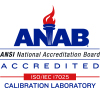 Posted on
Posted on

When it comes to long-term temperature monitoring or short-term temperature studies, there are a lot of terms that can be thrown around. This series of blog posts is meant to shed some light on these different terms and break down their meanings.
To read section one on temperature qualification, click here.
What is temperature mapping and why is it important?
Temperature mapping, also known as thermal mapping, is the process of acquiring a temperature profile within a controlled area (for example, a refrigerator, freezer, vehicle, or warehouse) to better manage the product being stored. The data collected can help to identify hot and cold spots as well as temperature fluctuations that could be caused by events such as opening and closing doors, airflow problems, or heat generated by equipment. Over time, these fluctuations and temperature variations can affect the overall efficacy and quality of the product which can have disastrous, and even deadly, results.
Who needs to do temperature mapping?
In the United States, the Federal Drug Administration (FDA) publish standards (known as GxP) that outline practices to ensure products are safe for consumers. One part of these standards states that a mapping study must be performed for any space where medicines, vaccines, biological samples, or temperature-sensitive products are stored. Depending on the industry, additional regulations may be in place for temperature mapping of medical, pharmaceutical, biotechnology, and food products.
How is a temperature mapping study conducted?
A temperature mapping study is conducted by strategically installing multiple temperature data loggers throughout a specified area to continuously record conditions over a set period of time.
The FDA and GxP offer general guidelines but do not say how exactly to conduct the study. The company determines the actual plan, based on what the space is used for and what mapping is looking to show. To understand these differences, take a look at the three scenarios below.

After the planning and processing phase is complete and has been documented, data loggers will be placed in the predetermined areas and record data for the specified amount of time. Tests can be carried out using standard or wireless data loggers. Wireless data loggers provide real-time readings that can be viewed remotely and allow for corrective actions to be taken during testing. With standard data loggers, data is downloaded once testing is complete.
Once the logging is complete, the devices are collected and data is downloaded. The analysis phase is next, and this is when the true results of the study can be seen. As with before, any findings (such as hot or cold spots) should be documented. Data can be compiled into one main report or into separate reports for individual analysis of time and temperature excursions.
Temperature mapping studies can be costly and time-consuming, so it’s no surprise companies reach out to third-party vendors to conduct temperature mapping studies. However, finding the right vendor for the job takes some research. When choosing a vendor, it’s important to consider the quality of their technicians and equipment, knowledge of industry requirements, and completion time.
A global leader in data logging technology for more than 25 years, MadgeTech offers remote and on-site temperature mapping studies based on your specific needs and industry requirements. From creation to execution, MadgeTech’s expert technicians customize a mapping protocol and perform the study using only ISO 17025 calibrated MadgeTech data loggers, ensuring accuracy and reliability with every reading.
An ISO 9001:2015 accredited company, MadgeTech provides a detailed protocol with results that stand up to regulatory authorities.
For more information on MadgeTech’s Mapping and Validation Services or to set up a consultation today, call (603) 456-2011 or email [email protected].






